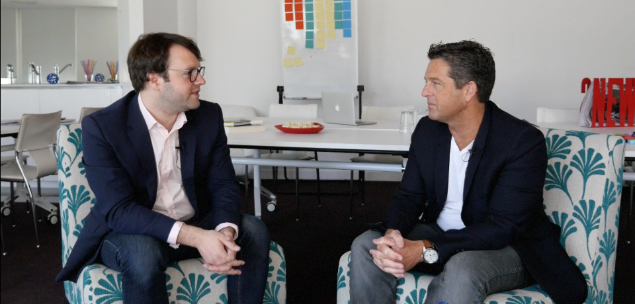We hear over and over again that businesses need to innovate otherwise they risk being chewed up and spat out by disruptive forces. But creating a company culture where people can be innovative is easier said than done.
I recently sat down to talk about innovation with Xero’s former Managing Director, Chris Ridd. Ridd made an enormous contribution to start-ups and SMEs during his leadership period with innovative companies like Xero and Microsoft. Following a career-shift, Ridd is now a start-up investor, mentor and non-executive director at Melbourne-based fintech, Moula. He joins the growing ranks of successful enterprise leaders who are now managing a portfolio of start-up interests.
In our conversation, we touched upon how innovative cultures are less than common in traditional corporations, yet interestingly, Ridd said he always felt empowered to innovate because of his experience working in the tech ecosystem throughout his career.
Embracing innovation is a scary thing in that it can lead to some very unpredictable outcomes. To use the old adage: no business plan ever survives first contact with customers. Many businesses try to minimise the potential negative results from that first contact via careful desktop research, focus groups and committee meetings, but this often comes at the expense of creativity.
Real creativity (and by extension innovation) means getting out there, interacting with customers, and learning from them. This means there are going to be mistakes, and that’s something that, culturally, many organisations don’t allow for. There continues to be the perception that failure is weakness, and that no one in their right mind would take risks if they believed that by doing so they were putting their career or business on the line. Some people will throw caution to the wind and do something innovative anyway, and that’s how we end up with the greatest thought leaders and global disruptor businesses. But it is in every business’s best interests to encourage creative thinking, and develop a culture of innovation. That means re-structuring the business so that failure is seen as a strength, rather than a weakness.
“Innovative cultures are easy for start-ups because they’re born with it, but to create that in a big corporation is a lot more challenging,” Ridd told me.
“Innovation needs to be built into the way that you operate as a business, but this is difficult for big organisations. To address this, what you’re seeing today is a lot of big organisations building innovation labs that are typically siphoned off from the core of the business that task employees to go and look at new ideas, and then bring the ideas that work back into the organisation.”
According to Ridd, innovation really needs to be driven downward from the leadership team, and it needs to be a genuine commitment, even through short term pain. “If I go back to 2001, Microsoft was really trying to build itself into a customer-centric organisation. It was a difficult time for the company, with the potential breaking up of the company around the anti-trust trial. The leadership team kept bringing everything back to the customer-centric culture that we were building. That took a number of years to do. There was a lot of change that needed to happen, and programs that needed to come into play, such as around leadership and how people talked about innovation.”
Changing the culture of a business so that it is accommodating of failure is challenging, and requires an organisation’s leadership to change its thinking from a focus on responsibility to a focus on learning.
“At Xero I made an almighty screw up in late 2013,” Ridd said. “It was the first time that we had made changes to our subscription pricing, and I made a wrong call.”
“When we launched, we got so much feedback on social. I remember going into a call with the CRO and thinking ‘I’ve screwed this up, I’m in big trouble’. But the conversation was actually along the lines of ‘yes, we’ve screwed up, but what are we going to do about it?'”
Fostering an environment where people are accountable, but don’t feel like a sword is hanging over their heads, is the secret to the success of many start-ups. Each failure is a learning opportunity for the entire organisation, and that learning directly leads to better ideas down the track.
“The great thing about my time at Xero was that the team all saw me fail and I was comfortable,” Ridd said. “I think that was a fabulous message to the organisation, that what’s important is not the failure, but how you deal with it.”
You can watch my full discussion with Chris Ridd here:
About the author
Peter Bradd is the co-founder and CEO of The Beanstalk Factory, a start-up working with corporates to inspire innovative thinking. He is also the founding director of StartupAUS, Fishburners and ScribblePics. He has previously shared his thoughts on failure in business with Dynamic Business. See: “Failure isn’t fatal, nor is it defining – it can equip you for success”: Beanstalk Factory CEO

